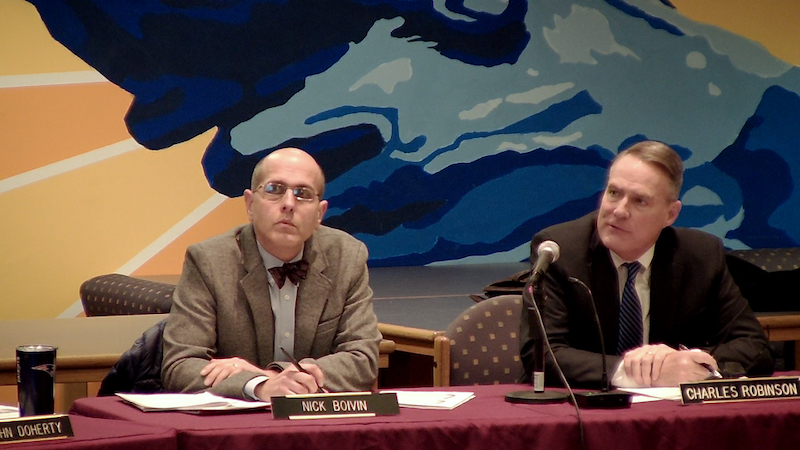 Long-term School Committee member Chuck Robinson announced his intention to run for reelection during the reports portion of the committee’s January 7 meeting. Robinson emphasized his years of service stating that he is “energized” to focus on new curriculum and advancing student outcomes now that the override and the school department’s collective bargaining have been completed. “People may not have agreed with every decision I have made, but I have always kept my focus on what is best for the kids” Robinson declared.
Long-term School Committee member Chuck Robinson announced his intention to run for reelection during the reports portion of the committee’s January 7 meeting. Robinson emphasized his years of service stating that he is “energized” to focus on new curriculum and advancing student outcomes now that the override and the school department’s collective bargaining have been completed. “People may not have agreed with every decision I have made, but I have always kept my focus on what is best for the kids” Robinson declared.
Superintendent of Schools John Doherty presented an overview of the Superintendent’s recommended Fiscal Year 2020 budget to the committee. This is the first of three sessions on the budget that the committee will host before a vote on the budget on January 28. Doherty commented, “This is the first year we are not talking about reductions due to financial restraints.”
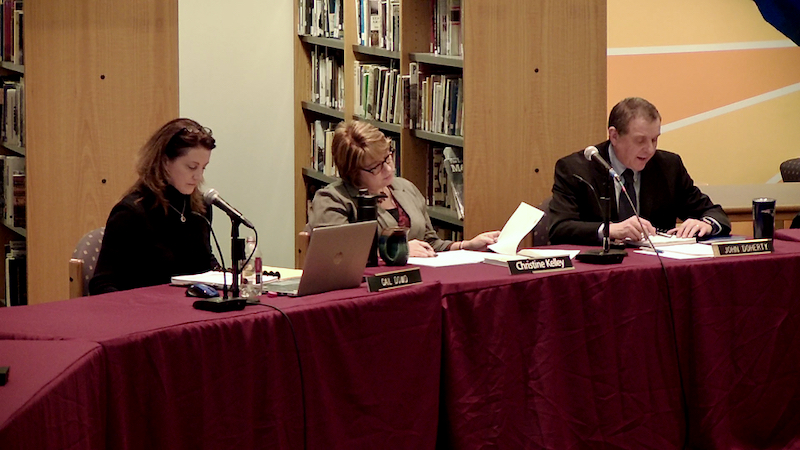 Doherty reported that the school department budget of $46,467,348 is 3.6% increase over FY 2019 and is a balanced, level-service, budget that fits the Finance Committee guidelines as set forth at the October Financial Forum. Eighty-six percent of the budget is contractual labor costs. Other cost drivers include Special Education costs, a social studies curriculum update, and increased cleaning service costs.
Doherty reported that the school department budget of $46,467,348 is 3.6% increase over FY 2019 and is a balanced, level-service, budget that fits the Finance Committee guidelines as set forth at the October Financial Forum. Eighty-six percent of the budget is contractual labor costs. Other cost drivers include Special Education costs, a social studies curriculum update, and increased cleaning service costs.
Doherty also shared that the district is currently in the final year of its district improvement plan and that the budget is shaped by priorities that will be a part of the new district improvement plan. These priorities include a focus on equity and access, closing the achievement gap, social and emotional learning, and school safety. Doherty also pointed out that in order to maintain class sizes, 1.2 full-time equivalents (FTE) teachers would need to be added in kindergarten and first grade. Also, 2.9 FTE paraeducators and 3.5 FTE teachers would be added to the special education budget.
Regular Day expenses are 58% of the total budget with special education comprising 32% of the overall cost. District-wide programs (4.4%), Facilities (3%), and Administration (2.4%) make up the rest of the budget.
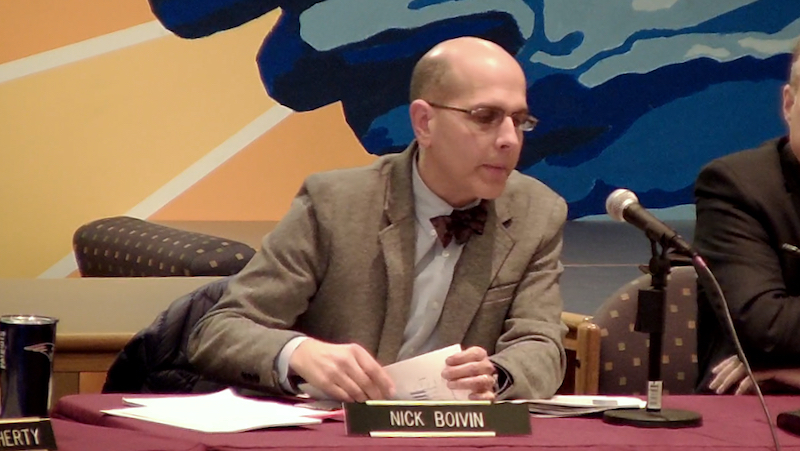 Questions were raised regarding the revolving funds with member Nick Boivin quick to point out to the community that revenues from these funds, which are garnered through charges for programs such as extended day and athletics, by law can only be used for those programs and cannot be transferred to other cost centers. Member Linda Snow Dockser expressed concern regarding why there are lower participation rates and ticket sales in the high school drama program. In regards to ticket sales, Dockser reasoned, “Shows such Urinetown and To Kill A Mockingbird may have smaller community appeal but are valuable learning experiences for the students.” Director of Finance Gail Dowd assured the committee that these issues are being pursued.
Questions were raised regarding the revolving funds with member Nick Boivin quick to point out to the community that revenues from these funds, which are garnered through charges for programs such as extended day and athletics, by law can only be used for those programs and cannot be transferred to other cost centers. Member Linda Snow Dockser expressed concern regarding why there are lower participation rates and ticket sales in the high school drama program. In regards to ticket sales, Dockser reasoned, “Shows such Urinetown and To Kill A Mockingbird may have smaller community appeal but are valuable learning experiences for the students.” Director of Finance Gail Dowd assured the committee that these issues are being pursued.
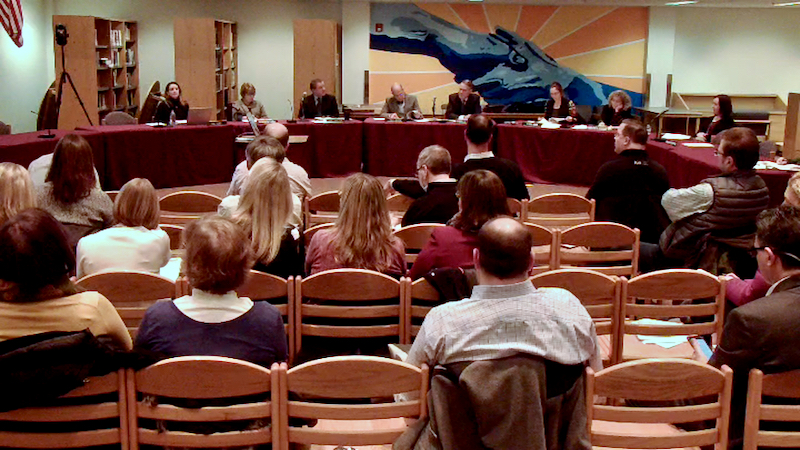 Dowd presented the administrative cost center. This budget for $2,093,892 has an increase of 3.1%. Primary drivers for the increase are cost of living adjustments (COLA). No new staff is to be added to the administration budget in FY2020.
Dowd presented the administrative cost center. This budget for $2,093,892 has an increase of 3.1%. Primary drivers for the increase are cost of living adjustments (COLA). No new staff is to be added to the administration budget in FY2020.
The district-wide programs cost center includes health services, athletics, extra-curricular activities, and technology. The recommended budget for this cost center is $2,041,343 and includes a 5.9% increase. The increase is primarily for COLA and software renewals.
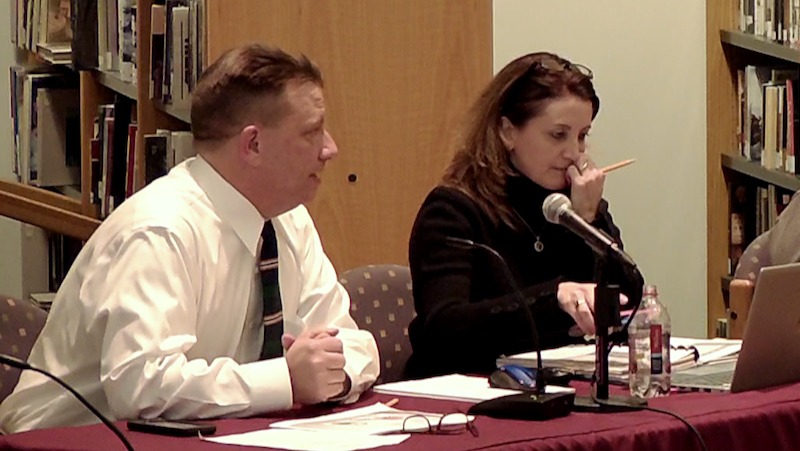 Facilities Director Joe Huggins presented a school facilities budget of $1,388,894 which is a 4.8% increase over FY2019. The primary drivers for the increases are COLA and the cleaning contract for Reading Memorial High School and Coolidge Middle School. Huggins also gave an update on capital expenses, including a new phone system, bells, PA system, and clocks for Birch Meadow Elementary School. There is also a need for a new courier vehicle, the current one being a repurposed driver’s education car from 2007.
Facilities Director Joe Huggins presented a school facilities budget of $1,388,894 which is a 4.8% increase over FY2019. The primary drivers for the increases are COLA and the cleaning contract for Reading Memorial High School and Coolidge Middle School. Huggins also gave an update on capital expenses, including a new phone system, bells, PA system, and clocks for Birch Meadow Elementary School. There is also a need for a new courier vehicle, the current one being a repurposed driver’s education car from 2007.
School Committee budget discussions will continue on January 17 and 24 with a public hearing also planned for January 24. The School Committee adjourned at 9:20 pm.
